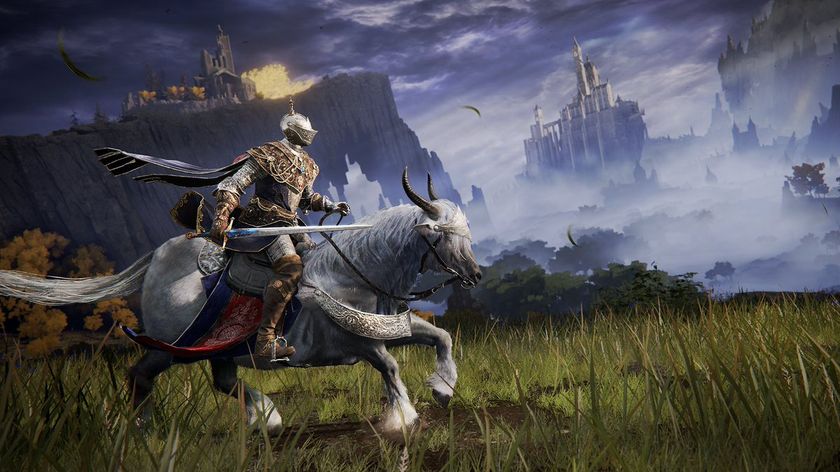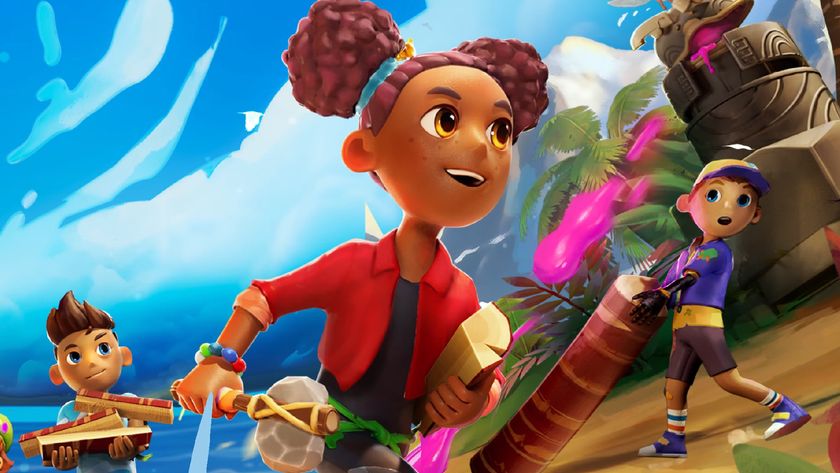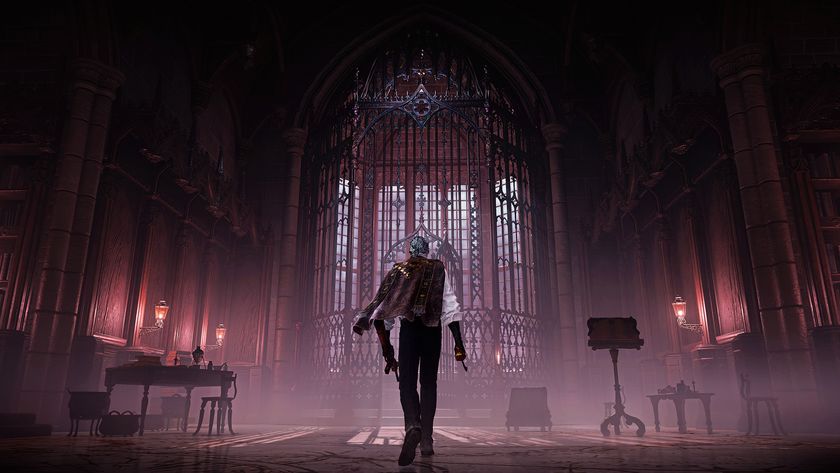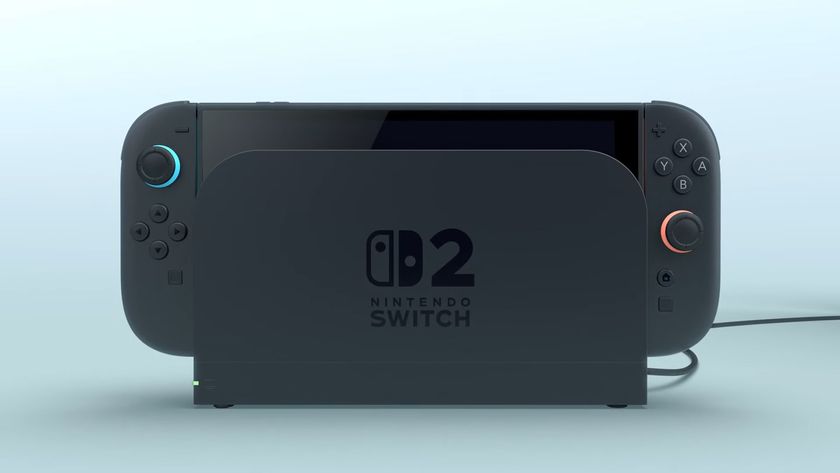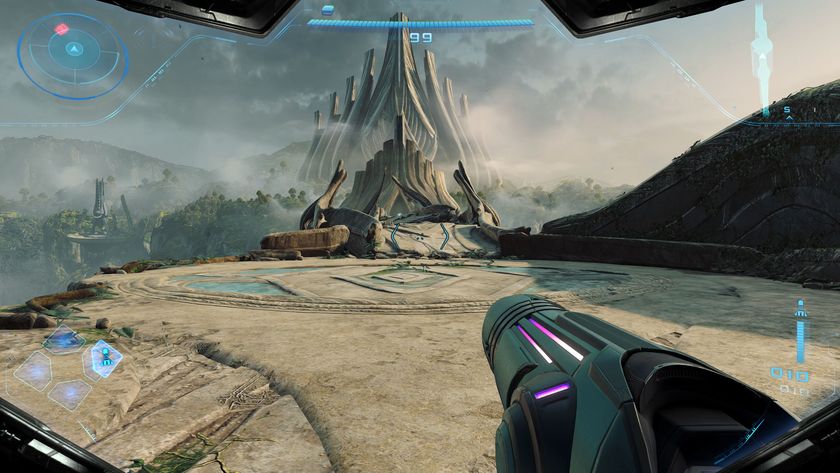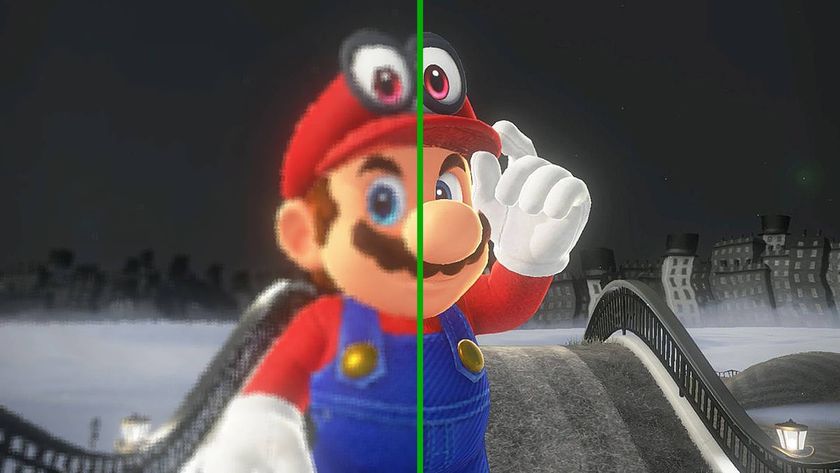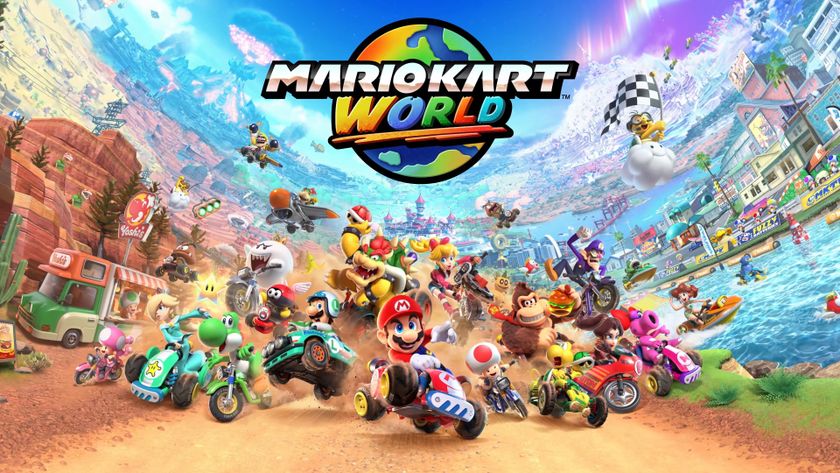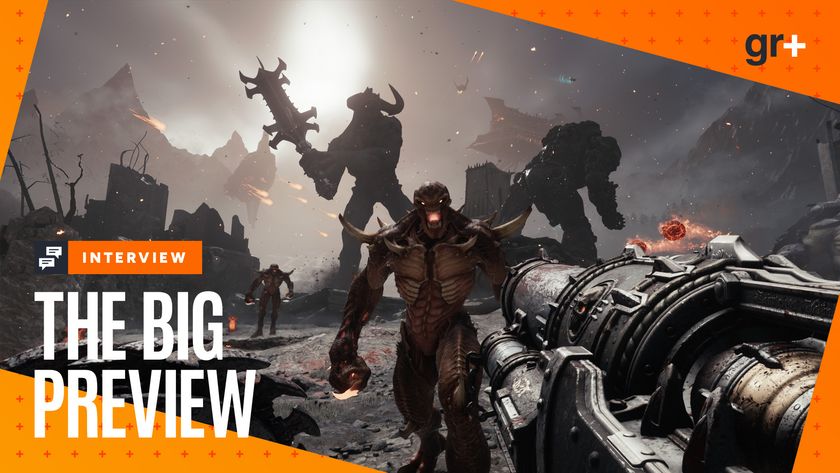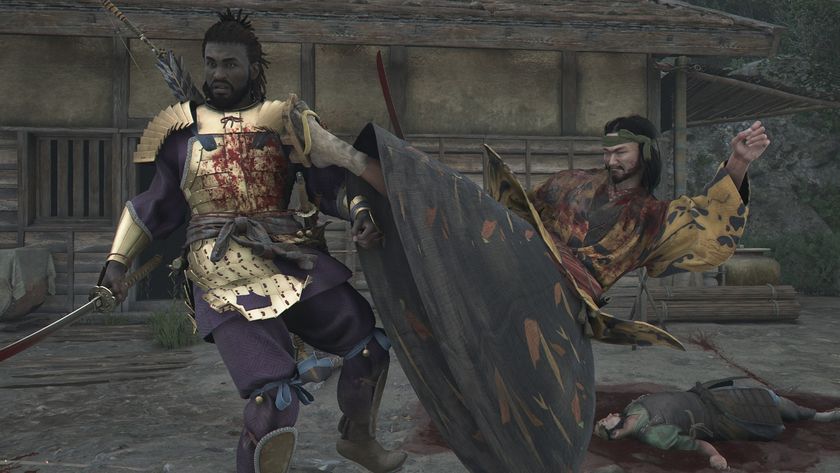Weirdest spin-offs in video game history
Series oddballs that strayed far from the norm
The highly unusual suspects

Oddball spin-offs, such as the ones included this list, have become something of a rarity these days. In the high-stakes world of video game development, most major game developers won't take the risk and put, say, Marcus Fenix in a baseball game. But every so often, someone will roll the dice and put together such an odd pairing. And the results - be it good or bad - are almost always entertaining.
Some developers, however, might've gone a bit overboard in trying to change things up, producing some of the weirdest spin-offs that the world of gaming has ever known. What follows are the series outcasts that threw us for a loop, with bizarre premises that are often wildly detached from the source material. And come on, where else are you going to find a Final Fantasy rhythm game, or Solid Snake playing cards?
Pokemon Snap
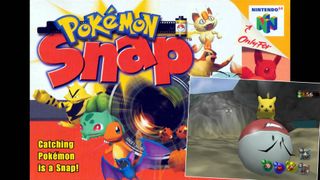
Original genre: Turn-based RPG
Spin-off: First-person photography
This entry was truly a neck-and-neck race between Pokemon Snap and Pokemon Conquest, the turn-based strategy game that mixed Pokemon with the Japanese-only strategy series Nobunaga's Ambition. Because why the hell not? At least Conquest is a turn-based strategy game, so there's a logical connection with the original games. A Pokemon game about taking pictures is just plain weird.
The fact that Pokemon Snap didn't kick off a new wave of first-person, on-rails photography games is a crime. You take pictures of Pokemon. That sounds really boring on paper, but dammit it makes a strangely engrossing game. It's not enough to just take pictures - you have to take good pictures, and that means thinking about composition, son. And when you've got Pidgey flying all over the place you need to have a hair trigger on the shutter to make sure you capture to the majestic beast right at the opportune moment.
Command & Conquer: Renegade

Original genre: Real-time strategy
Spin-off: First-person shooter
Command & Conquer: Renegade isn't the sort of game you see very often. Rarely does an established strategy game developer, such as Westwood, decide to dive headfirst into a genre they've never touched before. It's like if Blizzard tried to make StarCraft into a shooter, and we all know what happened to that little project.
Sign up to the 12DOVE Newsletter
Weekly digests, tales from the communities you love, and more
For fans of the Tiberium Wars series, Renegade is a real treat because it gives an up-close-and-personal view of the action, a perspective never-before-seen in a Command and Conquer game. It blended some of its RTS roots in with the FPS action, such as letting you spend resources to requisition better weapons and vehicles - sort of like Battlefield with resource management. The game was so beloved, in fact, that just last year a group of superfans released Renegade X, which updates Renegade's designs with Unreal Engine 3.
Kirby's Dream Course
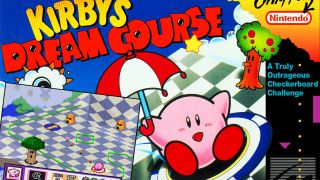
Original genre: 2D platformer
Spin-off: Puzzle and golf hybrid
Kirby's Dream Course sounds like a recipe for disaster. 'Hey guys, let's take this fun, co-op platformer and needlessly turn it into a golf game. Because if there's one thing kids love, it's long, boring games of golf.' Okay, maybe it didn't happen exactly like that, but I'm glad someone had this idea because the resulting game is actually awesome.
It helps to think of Dream Course not as a golfing game, per se, but as more of a puzzler with some golfing rules sprinkled on top. Kirby is the ball, there's a hole, you want to get 'em in there with a few hits as possible. The pink puffball's signature power-ups are in the mix, letting you zoom across the course as a wheelie or skate across frozen lakes with the power of ice. And because this is a Nintendo game, all the controls are super smooth and easy to learn. It may be an odd pairing, but Kirby's Dream Course is - wait for it - a hole in one.
Mega Man Soccer
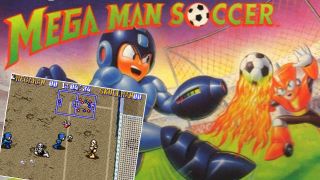
Original genre: 2D platformer
Spin-off: Soccer (or football, or whatever)
Mega Man Soccer and Kirby's Dream Course share a lot in common. Both games take a popular, 2D platformer and mash it up with a popular sport. But while Dream Course is a good game, Mega Man Soccer, quite frankly, sucks. It sucks worse than my ability to come up with soccer metaphors. Its most redeeming feature is performing special shots that utilize the powers of the different robot masters, but even those all do the same basic thing.
Things really go downhill quickly. The game will chug when more than, say, three characters are on the screen, and the limited field of view makes it nearly impossible to play the field - a problem which the AI doesn't seem to have, mind you. There's also this ominous tidbit from the game's Wikipedia page: "The game has no ending." There's a paper thin plot, but no conclusion, meaning the blue bomber is likely stuck in soccer-playing limbo for all eternity. Maybe that's why we don't see him around much anymore...
Super Puzzle Fighter II Turbo
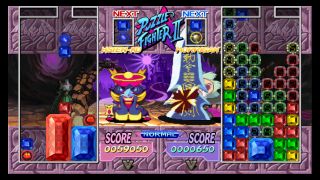
Original genre: 2D fighter
Spin-off: Color-matching puzzler
In spite of Mega Man Soccer's poor reception, developer Capcom surged ahead with their "Let's give it a shot, why not?" strategy and released the masterful Super Puzzle Fighter 2 Turbo two years later. This game is a real gem - literally. It's a fast-and-furious, competitive puzzle game centered around building up large gems of a single color, and then smashing them to send garbage blocks over to your opponent's screen and, hopefully, ruin his or her game.
And it also starts a crossover of Street Fighter and Darkstalkers characters (plus Devilotte of Cyberbots fame) because, again, why the hell not? And it's glorious. You're constantly trying to build a larger and larger gems so you can squash your opponent quickly while simultaneously hoping they don't send a bunch of garbage your way and muck up your plans. Plus, the little characters in the middle duke it with hadokens and shoryukens while you play. It's adorable.
Syndicate
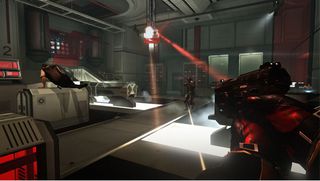
Original genre: Tactical strategy
Spin-off: First-person shooter
When Syndicate launched back in 1993, it was a deeply complex isometric tactics game. Using a squad of cyborgs to establish world-wide domination via assassinations, infiltrations, and persuasion was a simple yet alluring premise, and the whole experience was bolstered by the ability to research new equipment and tax conquered territories for income.
But Starbreeze Studios 2012 reimagining involved a little less politics and a lot more shooting, as the Syndicate reboot launched in first-person shooter form. Fans of the original were none too pleased. It was only related to Bullfrog Productions 1993 classic in so much as the word Syndicate showed up a lot, and it had guns in it--even though it was a fairly decent game in its own right.
Might & Magic: Clash of Heroes
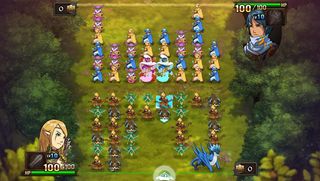
Original genre: Turn-based strategy
Spin-off: Puzzle
Depending on your genre preferences, theres a good chance that this spin-off will resonate with you far more than Might & Magics traditional gameplay. Instead of old-school, turn-based warfare between gangs of evil wizards and noble warriors, Clash of Heroes took a hard left turn into Japanese puzzle game territory.
With an aesthetic similar to Avatar: The Last Airbender and one-on-one stacking battles akin to Puyo Puyo and Magical Drop, this was a game that had next to nothing in common with the franchise entries before it. But sometimes, a little experimentation pays off--and the intricate, addictive strategy of placing your adorable troops just so was a blast of ridiculously fun fresh air in a series that seemingly had one foot stuck in the PC gaming past.
Theatrhythm Final Fantasy
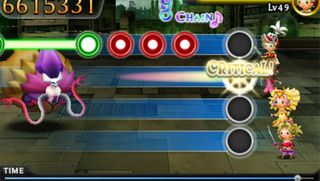
Original genre: Japanese role-playing game
Spin-off: Rhythm game
Square Enix's storied JRPG franchise had seen its fair share of spin-offs prior to 2012, but this bizarre yet endearing 3DS rhythm game takes the cake by far. Despite having a name that literally no one on the planet knows how to pronounce (or spell without consulting Wikipedia, for that matter), Theatrhythm Final Fantasy is the perfect homage to the role-playing series. It allowed players to build a party by choosing from several of the characters from each of the main entries in the franchise before embarking on a rhythm-based journey to save the universe.
While its plot was relatively simple (and perhaps loosely based on the film Footloose), the gameplay was delightful in its odd presentation. Battles and exploration were successfully completed by tapping and swiping the 3DS touch screen with the stylus to the beat of Nobuo Uematsus classic compositions. Anyone with a deep appreciation for all things Final Fantasy will find this to be an absolute treat.
Uncharted: Fight for Fortune
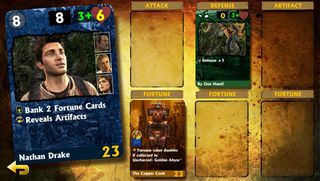
Original genre: Action adventure
Spin-off: Card game
After three hugely successful outings on the PlayStation 3, the Uncharted series moved on over into the mobile arena. First, there was Uncharted: Golden Abyss, a standalone prequel; then there was the downloadable Uncharted: Fight for Fortune, where Nathan Drakes treasure-hunting exploits depended more on card game tournaments than life or death adventures.
Fight for Fortune was basically a lite version of Magic: The Gathering in which youd use your best cards (unlocked when the game would synch its data to your progress/Trophies from previous Uncharted titles) to duel an opponent. While this was certainly a departure from the series roots (and contained 150% less Nolan North), it was a mildly entertaining affair for anyone with five bucks to burn.
12DOVE was first founded in 1999, and since then has been dedicated to delivering video game-related news, reviews, previews, features, and more. Since late 2014, the website has been the online home of Total Film, SFX, Edge, and PLAY magazines, with comics site Newsarama joining the fold in 2020. Our aim as the global GamesRadar Staff team is to take you closer to the games, movies, TV shows, and comics that you love. We want to upgrade your downtime, and help you make the most of your time, money, and skills. We always aim to entertain, inform, and inspire through our mix of content - which includes news, reviews, features, tips, buying guides, and videos.
